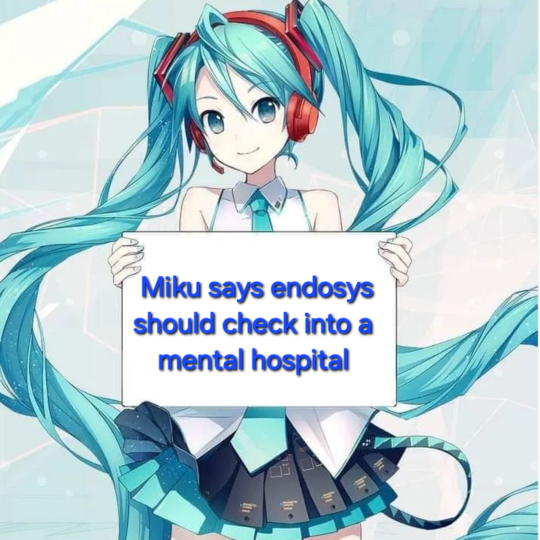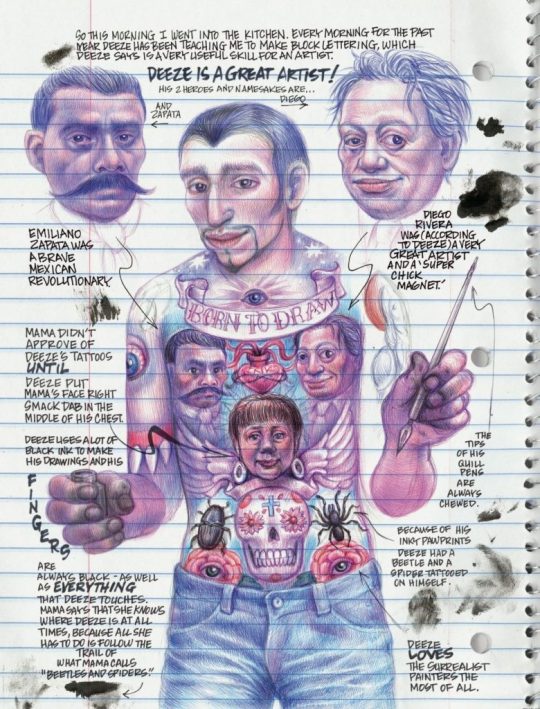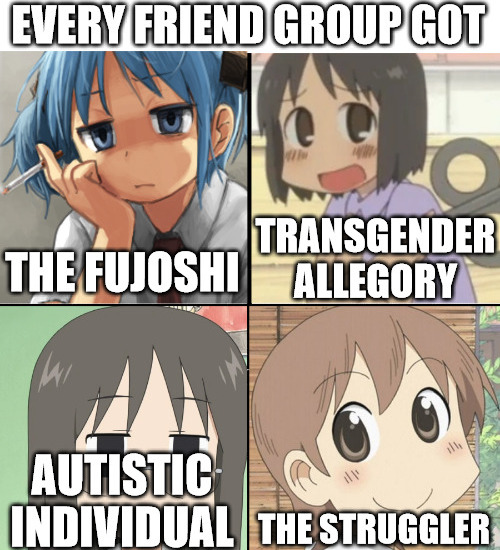#pluralistic
Text
Real innovation vs Silicon Valley nonsense

This is the LAST DAY to get my bestselling solarpunk utopian novel THE LOST CAUSE (2023) as a $2.99, DRM-free ebook!

If there was any area where we needed a lot of "innovation," it's in climate tech. We've already blown through numerous points-of-no-return for a habitable Earth, and the pace is accelerating.
Silicon Valley claims to be the epicenter of American innovation, but what passes for innovation in Silicon Valley is some combination of nonsense, climate-wrecking tech, and climate-wrecking nonsense tech. Forget Jeff Hammerbacher's lament about "the best minds of my generation thinking about how to make people click ads." Today's best-paid, best-trained technologists are enlisted to making boobytrapped IoT gadgets:
https://pluralistic.net/2024/05/24/record-scratch/#autoenshittification
Planet-destroying cryptocurrency scams:
https://pluralistic.net/2024/02/15/your-new-first-name/#that-dagger-tho
NFT frauds:
https://pluralistic.net/2022/02/06/crypto-copyright-%f0%9f%a4%a1%f0%9f%92%a9/
Or planet-destroying AI frauds:
https://pluralistic.net/2024/01/29/pay-no-attention/#to-the-little-man-behind-the-curtain
If that was the best "innovation" the human race had to offer, we'd be fucking doomed.
But – as Ryan Cooper writes for The American Prospect – there's a far more dynamic, consequential, useful and exciting innovation revolution underway, thanks to muscular public spending on climate tech:
https://prospect.org/environment/2024-05-30-green-energy-revolution-real-innovation/
The green energy revolution – funded by the Bipartisan Infrastructure Act, the Inflation Reduction Act, the CHIPS Act and the Science Act – is accomplishing amazing feats, which are barely registering amid the clamor of AI nonsense and other hype. I did an interview a while ago about my climate novel The Lost Cause and the interviewer wanted to know what role AI would play in resolving the climate emergency. I was momentarily speechless, then I said, "Well, I guess maybe all the energy used to train and operate models could make it much worse? What role do you think it could play?" The interviewer had no answer.
Here's brief tour of the revolution:
2023 saw 32GW of new solar energy come online in the USA (up 50% from 2022);
Wind increased from 118GW to 141GW;
Grid-scale batteries doubled in 2023 and will double again in 2024;
EV sales increased from 20,000 to 90,000/month.
https://www.whitehouse.gov/briefing-room/blog/2023/12/19/building-a-thriving-clean-energy-economy-in-2023-and-beyond/
The cost of clean energy is plummeting, and that's triggering other areas of innovation, like using "hot rocks" to replace fossil fuel heat (25% of overall US energy consumption):
https://rondo.com/products
Increasing our access to cheap, clean energy will require a lot of materials, and material production is very carbon intensive. Luckily, the existing supply of cheap, clean energy is fueling "green steel" production experiments:
https://www.wdam.com/2024/03/25/americas-1st-green-steel-plant-coming-perry-county-1b-federal-investment/
Cheap, clean energy also makes it possible to recover valuable minerals from aluminum production tailings, a process that doubles as site-remediation:
https://interestingengineering.com/innovation/toxic-red-mud-co2-free-iron
And while all this electrification is going to require grid upgrades, there's lots we can do with our existing grid, like power-line automation that increases capacity by 40%:
https://www.npr.org/2023/08/13/1187620367/power-grid-enhancing-technologies-climate-change
It's also going to require a lot of storage, which is why it's so exciting that we're figuring out how to turn decommissioned mines into giant batteries. During the day, excess renewable energy is channeled into raising rock-laden platforms to the top of the mine-shafts, and at night, these unspool, releasing energy that's fed into the high-availability power-lines that are already present at every mine-site:
https://www.euronews.com/green/2024/02/06/this-disused-mine-in-finland-is-being-turned-into-a-gravity-battery-to-store-renewable-ene
Why are we paying so much attention to Silicon Valley pump-and-dumps and ignoring all this incredible, potentially planet-saving, real innovation? Cooper cites a plausible explanation from the Apperceptive newsletter:
https://buttondown.email/apperceptive/archive/destructive-investing-and-the-siren-song-of/
Silicon Valley is the land of low-capital, low-labor growth. Software development requires fewer people than infrastructure and hard goods manufacturing, both to get started and to run as an ongoing operation. Silicon Valley is the place where you get rich without creating jobs. It's run by investors who hate the idea of paying people. That's why AI is so exciting for Silicon Valley types: it lets them fantasize about making humans obsolete. A company without employees is a company without labor issues, without messy co-determination fights, without any moral consideration for others. It's the natural progression for an industry that started by misclassifying the workers in its buildings as "contractors," and then graduated to pretending that millions of workers were actually "independent small businesses."
It's also the natural next step for an industry that hates workers so much that it will pretend that their work is being done by robots, and then outsource the labor itself to distant Indian call-centers (no wonder Indian techies joke that "AI" stands for "absent Indians"):
https://pluralistic.net/2024/05/17/fake-it-until-you-dont-make-it/#twenty-one-seconds
Contrast this with climate tech: this is a profoundly physical kind of technology. It is labor intensive. It is skilled. The workers who perform it have power, both because they are so far from their employers' direct oversight and because these fed-funded sectors are more likely to be unionized than Silicon Valley shops. Moreover, climate tech is capital intensive. All of those workers are out there moving stuff around: solar panels, wires, batteries.
Climate tech is infrastructural. As Deb Chachra writes in her must-read 2023 book How Infrastructure Works, infrastructure is a gift we give to our descendants. Infrastructure projects rarely pay for themselves during the lives of the people who decide to build them:
https://pluralistic.net/2023/10/17/care-work/#charismatic-megaprojects
Climate tech also produces gigantic, diffused, uncapturable benefits. The "social cost of carbon" is a measure that seeks to capture how much we all pay as polluters despoil our shared world. It includes the direct health impacts of burning fossil fuels, and the indirect costs of wildfires and extreme weather events. The "social savings" of climate tech are massive:
https://arstechnica.com/science/2024/05/climate-and-health-benefits-of-wind-and-solar-dwarf-all-subsidies/
For every MWh of renewable power produced, we save $100 in social carbon costs. That's $100 worth of people not sickening and dying from pollution, $100 worth of homes and habitats not burning down or disappearing under floodwaters. All told, US renewables have delivered $250,000,000,000 (one quarter of one trillion dollars) in social carbon savings over the past four years:
https://arstechnica.com/science/2024/05/climate-and-health-benefits-of-wind-and-solar-dwarf-all-subsidies/
In other words, climate tech is unselfish tech. It's a gift to the future and to the broad public. It shares its spoils with workers. It requires public action. By contrast, Silicon Valley is greedy tech that is relentlessly focused on the shortest-term returns that can be extracted with the least share going to labor. It also requires massive public investment, but it also totally committed to giving as little back to the public as is possible.
No wonder America's richest and most powerful people are lining up to endorse and fund Trump:
https://prospect.org/blogs-and-newsletters/tap/2024-05-30-democracy-deshmocracy-mega-financiers-flocking-to-trump/
Silicon Valley epitomizes Stafford Beer's motto that "the purpose of a system is what it does." If Silicon Valley produces nothing but planet-wrecking nonsense, grifty scams, and planet-wrecking, nonsensical scams, then these are all features of the tech sector, not bugs.
As Anil Dash writes:
Driving change requires us to make the machine want something else. If the purpose of a system is what it does, and we don’t like what it does, then we have to change the system.
https://www.anildash.com/2024/05/29/systems-the-purpose-of-a-system/
To give climate tech the attention, excitement, and political will it deserves, we need to recalibrate our understanding of the world. We need to have object permanence. We need to remember just how few people were actually using cryptocurrency during the bubble and apply that understanding to AI hype. Only 2% of Britons surveyed in a recent study use AI tools:
https://www.bbc.com/news/articles/c511x4g7x7jo
If we want our tech companies to do good, we have to understand that their ground state is to create planet-wrecking nonsense, grifty scams, and planet-wrecking, nonsensical scams. We need to make these companies small enough to fail, small enough to jail, and small enough to care:
https://pluralistic.net/2024/04/04/teach-me-how-to-shruggie/#kagi
We need to hold companies responsible, and we need to change the microeconomics of the board room, to make it easier for tech workers who want to do good to shout down the scammers, nonsense-peddlers and grifters:
https://pluralistic.net/2023/07/28/microincentives-and-enshittification/
Yesterday, a federal judge ruled that the FTC could hold Amazon executives personally liable for the decision to trick people into signing up for Prime, and for making the unsubscribe-from-Prime process into a Kafka-as-a-service nightmare:
https://arstechnica.com/tech-policy/2024/05/amazon-execs-may-be-personally-liable-for-tricking-users-into-prime-sign-ups/
Imagine how powerful a precedent this could set. The Amazon employees who vociferously objected to their bosses' decision to make Prime as confusing as possible could have raised the objection that doing this could end up personally costing those bosses millions of dollars in fines:
https://pluralistic.net/2023/09/03/big-tech-cant-stop-telling-on-itself/
We need to make climate tech, not Big Tech, the center of our scrutiny and will. The climate emergency is so terrifying as to be nearly unponderable. Science fiction writers are increasingly being called upon to try to frame this incomprehensible risk in human terms. SF writer (and biologist) Peter Watts's conversation with evolutionary biologist Dan Brooks is an eye-opener:
https://thereader.mitpress.mit.edu/the-collapse-is-coming-will-humanity-adapt/
They draw a distinction between "sustainability" meaning "what kind of technological fixes can we come up with that will allow us to continue to do business as usual without paying a penalty for it?" and sustainability meaning, "what changes in behavior will allow us to save ourselves with the technology that is possible?"
Writing about the Watts/Brooks dialog for Naked Capitalism, Yves Smith invokes William Gibson's The Peripheral:
With everything stumbling deeper into a ditch of shit, history itself become a slaughterhouse, science had started popping. Not all at once, no one big heroic thing, but there were cleaner, cheaper energy sources, more effective ways to get carbon out of the air, new drugs that did what antibiotics had done before…. Ways to print food that required much less in the way of actual food to begin with. So everything, however deeply fucked in general, was lit increasingly by the new, by things that made people blink and sit up, but then the rest of it would just go on, deeper into the ditch. A progress accompanied by constant violence, he said, by sufferings unimaginable.
https://www.nakedcapitalism.com/2024/05/preparing-for-collapse-why-the-focus-on-climate-energy-sustainability-is-destructive.html
Gibson doesn't think this is likely, mind, and even if it's attainable, it will come amidst "unimaginable suffering."
But the universe of possible technologies is quite large. As Chachra points out in How Infrastructure Works, we could give every person on Earth a Canadian's energy budget (like an American's, but colder), by capturing a mere 0.4% of the solar radiation that reaches the Earth's surface every day. Doing this will require heroic amounts of material and labor, especially if we're going to do it without destroying the planet through material extraction and manufacturing.
These are the questions that we should be concerning ourselves with: what behavioral changes will allow us to realize cheap, abundant, green energy? What "innovations" will our society need to focus on the things we need, rather than the scams and nonsense that creates Silicon Valley fortunes?
How can we use planning, and solidarity, and codetermination to usher in the kind of tech that makes it possible for us to get through the climate bottleneck with as little death and destruction as possible? How can we use enforcement, discernment, and labor rights to thwart the enshittificatory impulses of Silicon Valley's biggest assholes?

If you'd like an essay-formatted version of this post to read or share, here's a link to it on pluralistic.net, my surveillance-free, ad-free, tracker-free blog:
https://pluralistic.net/2024/05/30/posiwid/#social-cost-of-carbon
#pluralistic#ai#hype#anil dash#stafford beer#amazon#prime#scams#dark patterns#POSIWID#the purpose of a system is what it does#climate#economics#innovation#renewables#social cost of carbon#green energy#solar#wind#ryan cooper#peter watts#the jackpot#ai hype#chips act#ira#inflation reduction act#infrastructure#deb chachra
129 notes
·
View notes
Text
something that astounds me /pos is how every system i see on here has such aesthetic cool names for their systems. i’d love to hear any stories of how your systems got their collective names :3
(tags are for reach)
#pluralistic#plural community#plural system#plurality#actually plural#pluralgang#system#osdd system#median system#did system#traumagenic system#system stuff#dissociative system#cheesecake’s perch
1K notes
·
View notes
Text

how it feels discussing exotrauma
#&🎀#&x!#pluralgang#plural culture#pluralistic#plural memes#median system#actually median#mediple system#plural positivity#actually plural#endo friendly#endo safe#plural community#exotrauma#exomemories#fictive#factive#introject
297 notes
·
View notes
Text
Cory Doctorow: “If you were unfortunate enough to e-file your US tax using HR Block, Taxact or Taxslayer, your most sensitive financial information was nonconsenually shared with Facebook, where it was added to the involuntary dossier the company maintains billions of people, including people who don't have Facebook accounts.”
#Pluralistic#Cory Doctorow#IRS#taxes#HR Block#Taxact#Taxslayer#Facebook#privacy#monopoly#politics#US politics#Grover Norquist#income tax#US income tax
2K notes
·
View notes
Text
LOL KEKW ENDOS

#actually plural#plural gang#pluralgang#pluralism#endo system#endos dni#not endo safe#endos fuck off#anti endo#pluralistic#plural system#plurality#plural community#plural culture is#plural#plural stuff#plural safe#did alter#did system#dissociative identity disorder#dissociative system#realsys#system pride#traumagenic system#system stuff#actually mentally ill#actually did#actuallyplural
67 notes
·
View notes
Text
"Service to others is the rent you pay for your room here on Earth." - Muhammad Ali
#life quotes#quoteoftheday#inspiring quotes#book quotes#relatable quotes#science#nasa#planet#astronomy#physics#iphone#iphonography#i promise#enshittification#copyright#financiazation#iptv#drm#pluralistic#ipad#horror#popular#poetry#my post#poem#politics#kfp#portrait#pokemon
25 notes
·
View notes
Text
I'm (?) seriously exploring the possibility of being a plural right now. Any advice on figuring things out?
5 notes
·
View notes
Text
winning moment

#pluralistic#victim blaming#fraud#going meta#douglas rushkoff#ad-tech#local search#wix#amex#thai food#business#rent-seeking#entrepreneurship#passive income#chokepoint capitalism#platform lawyers#relevant#late stage capitalism#capitalism#communism#socialism#anarchism#economics#home values#rent#landlords#vampires#making money#making money online#make money with affiliate marketing
11 notes
·
View notes
Text
What is My Pluralistic Stance on Human Sacrifice/Murder? (Caution Spicy)

First, I must start by saying: I don’t think human sacrifice was justifiable in any time period, race, culture, or geographical location. I can’t imagine that’s an acceptable way to appease the gods. But in the same breath, I can also be aware that that is my perception of the Divine, gods, and powers that be. Any interpretation I muster will be my subjective interpretation of the symbols and images cast before us by the gods and, ultimately, The One.
If someone today were to think human sacrifices were still acceptable, who am I to say they are wrong and then go out to enforce my perception of what people should be doing? I am not in law enforcement, this is why we have people that do that in society, to go after murders. This is why I’m also drawn to both (Neo) Platonism and Daoism. It allows me to have and establish my morals but also allows me to flesh out my pre-existing pluralistic beliefs. I'm being taught to not make distinctions between what “is” and what “isn’t” and to let Fate naturally distinguish itself.
Zhuangzi says this: "The Dao has no boundaries. Words have never had constancy. It is because of "it is" that boundaries exist (2.14.1-3). Guo Xiang expands on the last sentence: It is because the Dao has no boundaries that each of the myriad things can fully realize the limits to its own potential.
Regarding punishment and the enforcement of things like murder, I take a very deterministic stance that if it is not in accord with Fate or Nature…whatever we are doing, Nature/Fate, or the Law of the Land will correct it, sometimes in the most brutal and disgusting ways. But we have grown as a society where murder and human sacrifice are unacceptable.
I don’t think pluralism gives the murders any “legitimacy.” I think pluralism allows for more of an understanding of all the bad stuff we do to each other and the world and to try to find the next best solution to correct our mistakes. That said, I’m also being taught/reminded that our knowledge does have limits, and that in turn means so does our understanding of things, be they bad or good.
So how can I "understand" the murder while also believing full-heartedly that their actions are completely unjust and should meet some sort of punishment? Zhuangzi says this: To know how Heaven acts and how man acts is to reach perfection. To know how Heaven acts is to live in step with Heaven. When it comes to knowing how man should act, he takes what his knowing knows and uses it to know what he does not know and so lives out the full span of his years without dying young in mid-course; such is his fullness of knowledge. (6.1.1-3)
I take the above quotes to mean spontaneously having morals but not too self-consciously pondering or enforcing them. To know how Heaven and Man act is to act in accordance with our innate principle, which is always in step with Heaven, if we cast aside the notion of "what is" and "what is not" (Zhuangzi 2.14.11).
And a friend in Discord raised a good point: how much understanding can we give until we give that bad or good thing a platform? The answer will vary for everyone, as I don't wish to dictate how much "understanding" or "knowledge" one should have. According to the words of Zhuangzi and Guo Xiang, we are allotted a certain amount of understanding or knowledge. This doesn't mean it's futile to study or try to gain understanding or knowledge, but it's to recognize your own limits. If Law enforcement and politics are in one's innate nature, then one should most definitely pursue that. For me, I know that's not in my nature. We are encouraged to have "fullness of knowledge," but this is not as good as completely discarding knowledge entirely and leaving it up to Heaven to naturally divide and distinguish. (Zhuangzi 6.2.1). The act of "not knowing" and "knowing" results in a sort of wholeness that our knowledge nourishes what we "don't know," according to Guo Xiang comments on 6.2.1.
We "don't know" why people thought human sacrifice was okay and justifiable. Today, we "don't know" why people murder and why some people have a greater understanding of why the murderer murders. So for each of us, we use what we know to furnish what we "don't know." This is why so many of us have different answers for this spicy topic: Murder and Human sacrifice.
I was explaining a little bit of what I’ve been reading on Daoism to my father, and he’s skeptical too of how “loose” and lacking the ethics are. But that’s a wrong takeaway from what I was saying and pluralism in general. Daoism calls us to act spontaneously when we know something in our innate principle (nature) to be wrong. If we are perfectly aligned with Fate, in harmony with it, we can act in accord with what naturally is and isn’t good for the world. But first, we must cast aside the very notion that things are and that they are not. It’s very similar to Hermeticism in that respect, as in we must cast aside the physical world and all its illusions to truly find the images of God(The One).
18 notes
·
View notes
Text
Emil Ferris’s long-awaited “My Favorite Thing Is Monsters Book Two”

NEXT WEEKEND (June 7–9), I'm in AMHERST, NEW YORK to keynote the 25th Annual Media Ecology Association Convention and accept the Neil Postman Award for Career Achievement in Public Intellectual Activity.

Seven years ago, I was absolutely floored by My Favorite Thing Is Monsters, a wildly original, stunningly gorgeous, haunting and brilliant debut graphic novel from Emil Ferris. Every single thing about this book was amazing:
https://memex.craphound.com/2017/06/20/my-favorite-thing-is-monsters-a-haunting-diary-of-a-young-girl-as-a-dazzling-graphic-novel/
The more I found out about the book, the more amazed I became. I met Ferris at that summer's San Diego Comic Con, where I learned that she had drawn it over a while recovering from paralysis of her right – dominant – hand after a West Nile Virus infection. Each meticulously drawn and cross-hatched page had taken days of work with a pen duct-taped to her hand, a project of seven years.
The wild backstory of the book's creation was matched with a wild production story: first, Ferris's initial publisher bailed on her because the book was too long; then her new publisher's first shipment of the book was seized by the South Korean state bank, from the Panama Canal, when the shipper went bankrupt and its creditors held all its cargo to ransom.
My Favorite Thing Is Monsters told the story of Karen Reyes, a 10 year old, monster-obsessed queer girl in 1968 Chicago who lives with her working-class single mother and her older brother, Deeze, in an apartment house full of mysterious, haunted adults. There's the landlord – a gangster and his girlfriend – the one-eyed ventriloquist, and the beautiful Holocaust survivor and her jazz-drummer husband.
Karen narrates and draws the story, depicting herself as a werewolf in a detective's trenchcoat and fedora, as she tries to unravel the secrets kept by the grownups around her. Karen's life is filled with mysteries, from the identity of her father (her brother, a talented illustrator, has removed him from all the family photos and redrawn him as the Invisible Man) to the purpose of a mysterious locked door in the building's cellar.
But the most pressing mystery of all is the death of her upstairs neighbor, the beautiful Annika Silverberg, a troubled Holocaust survivor whose alleged suicide just doesn't add up, and Karen – who loved and worshiped Annika – is determined to get to the bottom of it.
Karen is tormented by the adults in her life keeping too much from her – and by their failure to shield her from life's hardest truths. The flip side of Karen's frustration with adult secrecy is her exposure to adult activity she's too young to understand. From Annika's cassette-taped oral history of her girlhood in an Weimar brothel and her escape from a Nazi concentration camp, to the sex workers she sees turning tricks in cars and alleys in her neighborhood, to the horrors of the Vietnam war, Karen's struggle to understand is characterized by too much information, and too little.
Ferris's storytelling style is dazzling, and it's matched and exceeded by her illustration style, which is grounded in the classic horror comics of the 1950s and 1960s. Characters in Karen's life – including Karen herself – are sometimes depicted in the EC horror style, and that same sinister darkness crowds around the edges of her depictions of real-world Chicago.
These monster-comic throwbacks are absolute catnip for me. I, too, was a monster-obsessed kid, and spent endless hours watching, drawing, and dreaming about this kind of monster.

But Ferris isn't just a monster-obsessive; she's also a formally trained fine artist, and she infuses her love of great painters into Deeze, Karen's womanizing petty criminal of an older brother. Deeze and Karen's visits to the Art Institute of Chicago are commemorated with loving recreations of famous paintings, which are skillfully connected to pulp monster art with a combination of Deeze's commentary and Ferris's meticulous pen-strokes.
Seven years ago, Book One of My Favorite Thing Is Monsters absolutely floored me, and I early anticipated Book Two, which was meant to conclude the story, picking up from Book One's cliff-hanger ending. Originally, that second volume was scheduled for just a few months after Book One's publication (the original manuscript for Book One ran to 700 pages, and the book had been chopped down for publication, with the intention of concluding the story in another volume).
But the book was mysteriously delayed, and then delayed again. Months stretched into years. Stranger rumors swirled about the second volume's status, compounded by the bizarre misfortunes that had befallen book one. Last winter, Bleeding Cool's Rich Johnston published an article detailing a messy lawsuit between Ferris and her publishers, Fantagraphics:
https://bleedingcool.com/comics/fantagraphics-sued-emil-ferris-over-my-favorite-thing-is-monsters/
The filings in that case go some ways toward resolve the mystery of Book Two's delay, though the contradictory claims from Ferris and her publisher are harder to sort through than the mysteries at the heart of Monsters. The one sure thing is that writer and publisher eventually settled, paving the way for the publication of the very long-awaited Book Two:
https://www.fantagraphics.com/products/my-favorite-thing-is-monsters-book-two
Book Two picks up from Book One's cliffhanger and then rockets forward. Everything brilliant about One is even better in Two – the illustrations more lush, the fine art analysis more pointed and brilliant, the storytelling more assured and propulsive, the shocks and violence more outrageous, the characters more lovable, complex and grotesque.
Everything about Two is more. The background radiation of the Vietnam War in One takes center stage with Deeze's machinations to beat the draft, and Deeze and Karen being ensnared in the Chicago Police Riots of '68. The allegories, analysis and reproductions of classical art get more pointed, grotesque and lavish. Annika's Nazi concentration camp horrors are more explicit and more explicitly connected to Karen's life. The queerness of the story takes center stage, both through Karen's first love and the introduction of a queer nightclub. The characters are more vivid, as is the racial injustice and the corruption of the adult world.

I've been staring at the spine of My Favorite Thing Is Monsters Book One on my bookshelf for seven years. Partly, that's because the book is such a gorgeous thing, truly one of the great publishing packages of the century. But mostly, it's because I couldn't let go of Ferris's story, her characters, and her stupendous art.
After seven years, it would have been hard for Book Two to live up to all that anticipation, but goddammit if Ferris didn't manage to meet and exceed everything I could have hoped for in a conclusion.
There's a lot of people on my Christmas list who'll be getting both volumes of Monsters this year – and that number will only go up if Fantagraphics does some kind of slipcased two-volume set.
In the meantime, we've got more Ferris to look forward to. Last April, she announced that she had sold a prequel to Monsters and a new standalone two-volume noir murder series to Pantheon Books:
https://twitter.com/likaluca/status/1648364225855733769

If you'd like an essay-formatted version of this post to read or share, here's a link to it on pluralistic.net, my surveillance-free, ad-free, tracker-free blog:
https://pluralistic.net/2024/06/01/the-druid/#oh-my-papa
103 notes
·
View notes
Text
tbh it’s so comforting to refer to the system as a whole as “us”. like yeah if you don’t believe me you can ask my buddy earl
#cheesecake’s perch#pluralistic#plural culture#pluralgang#plural positivity#actually plural#plural community#systemblr#median system#actually mediple#actually median
319 notes
·
View notes
Text

tag ur headmates
#&🎀#&x#&x!#&media#pluralgang#plural pride#pluralistic#plural positivity#plural memes#actually plural#plural stuff#plural community#plurality#system memes#endo safe#endo friendly#median system#actually median#mediple system#plural culture
68 notes
·
View notes
Text
Last week’s spectacular OpenAI fight was reportedly a donnybrook between “Effective Altruism” and “Effective Accelarationism”—two schools of philosophy founded on the nonsensical faith, absent any evidence, that godlike artificial intelligence (AI) beings are imminent, and arguing over the best way to prepare for that day.
Cory Doctorow @mostlysignssomeportents :
This "AI debate" is pretty stupid, proceeding as it does from the foregone conclusion that adding compute power and data to the next-word-predictor program will eventually create a conscious being, which will then inevitably become a superbeing. This is a proposition akin to the idea that if we keep breeding faster and faster horses, we’ll get a locomotive….
But for people who don’t take any of this mystical nonsense about spontaneous consciousness arising from applied statistics seriously, these two sides are nearly indistinguishable, sharing as they do this extremely weird belief. The fact that they’ve split into warring factions on its particulars is less important than their unified belief in the certain coming of the paperclip-maximizing apocalypse….
Left out of this argument are the real abuses of artificial intelligence and automation today, which (Cory says, quoting Molly White) “is incredibly convenient for the powerful individuals and companies who stand to profit from AI.”
AI and automation can be used for a great deal of good and a great deal of evil—and it already is being used for both, Cory says. We need to focus the discussion on that.
Like Cory, I think it’s entirely possible that we may achieve human-level AI one day, and that AI might become superintelligent. That might happen today, it might happen in a thousand years, it might never happen at all. The human race has other things to worry about now.
114 notes
·
View notes
Note
FOLLOW YOUR OWN FUCKING DNI GODDAMN!
How am I not following my own dni?? Plus, we don't have a dni. we have a bui, so... LOL IF YOU HAVE TO GO ANON TO SAY SOMETHING THEN YOUR FUCKING SCARED. no one asked you to interact and ask questions here so you probably broke yours to. KEKW

#actually plural#did alter#did system#dissociative identity disorder#dissociative system#plural system#plurality#system pride#anti endo#endos dni#pluralistic#pluralism#plural#plural community#plural culture is#plural gang#pluralgang#actually mentally ill#actually did#did plurality#did#did osdd#system#system stuff#traumagenic system#traumagenic
23 notes
·
View notes
Text
PINNED
alter pack acc, send reqs for fictives or brainmade alters! you can be as specific or detailed as you like ~
use the form below!
______________________
name :
age :
prns :
theme :
appearance :
IDS :

#alter ideas#alter packs#alterpack#plural things#pluralistic#plural pride#plural positivity#plural artist#plural userbox#osdd plural#pluralgang#plurality#traumagenic system#system stuff#pro endo#endo safe#endo friendly#endogenic
2 notes
·
View notes
Text
In 2018, Tumblr announced a ban on "adult content." That call was made by Verizon, Tumblr's erstwhile owner, and to call the resulting mess "a shitshow" is an insult to good, hardworking shitshows all over the world.
Verizon enforced this policy with an automated filter, which was charged with analyzing images and categorizing them as "sexual" or "nonsexual." This is risible enough, like asking a computer to sort videos into "virtuous" or "sinful" but that was just for starters.
Verizon's ban included a ban on "female-presenting nipples" – a canonically hard-to-define category – but included exceptions for non-sexual nipple images. Hard to imagine that any serious, disinterested computer scientist promising that an algorithm could cleave "female-presenting nipples" from "male-presenting" ones, let alone decide which ones were "sexual" or not.
The filters were…not good. Verizon posted a selection of images that were explicitly permitted under its policies. That post was blocked by Tumblr's filter.
61 notes
·
View notes